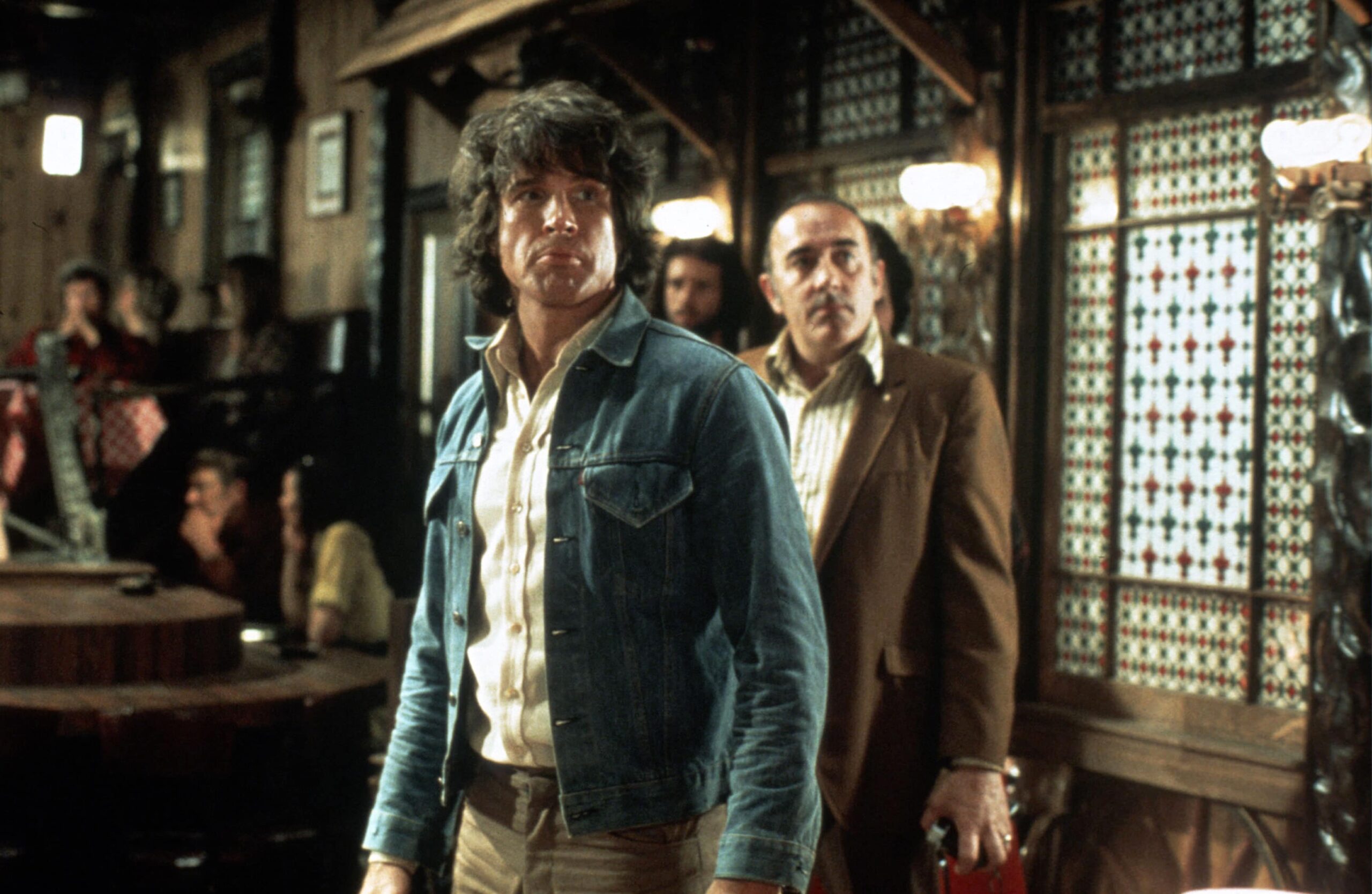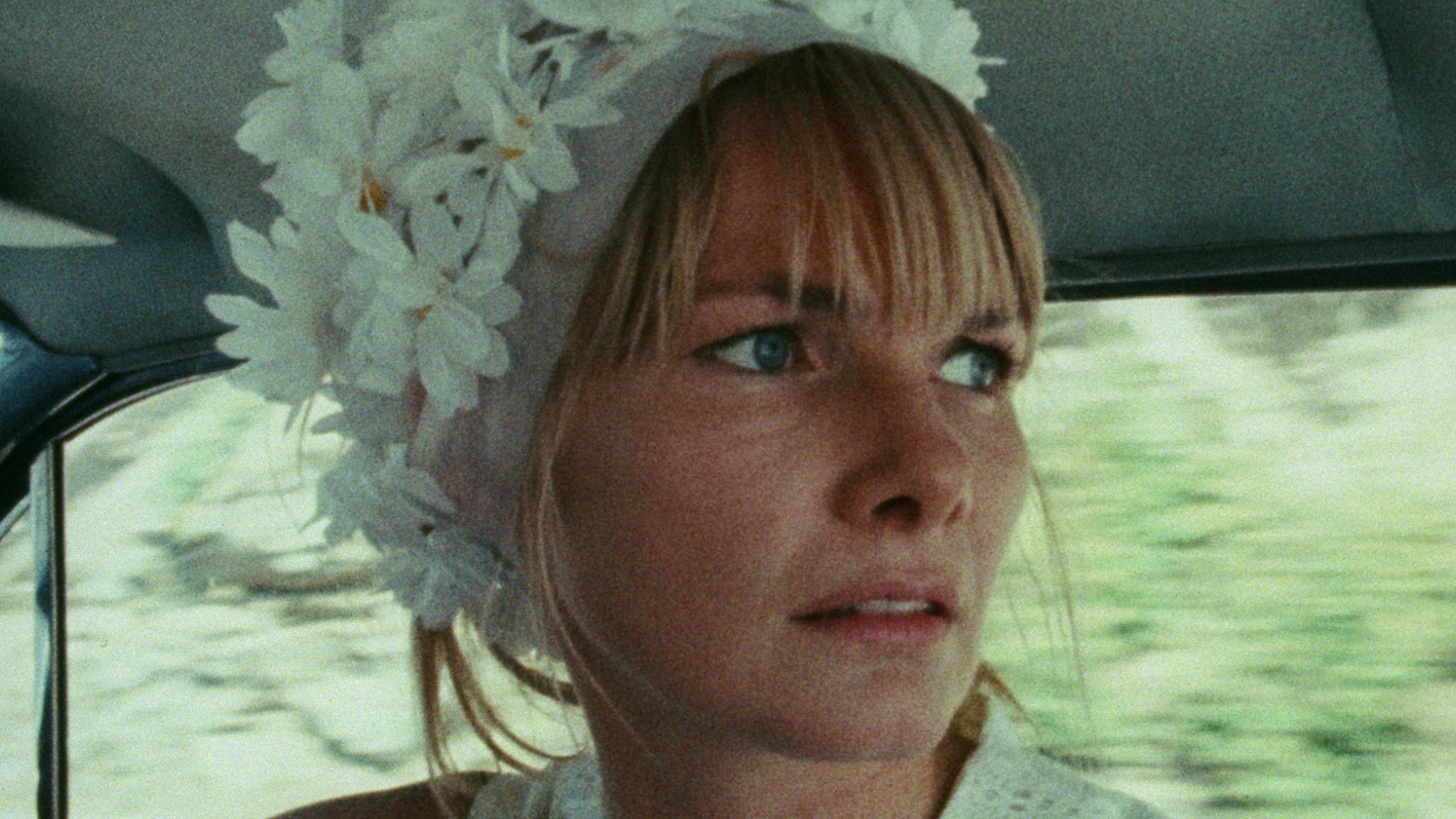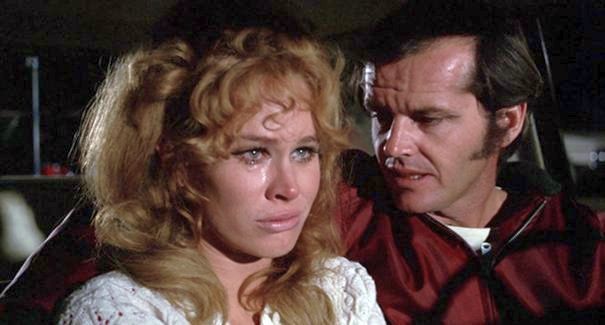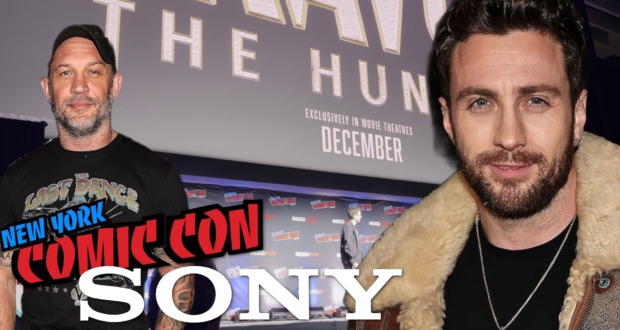There is a great scene in “Ocean’s Twelve” (a very underrated chapter in the “Ocean’s” series) where Brad Pitt (Rusty) and George Clooney (Danny) haze Matt Damon’s Linus, who has requested to take on more of a leadership role in their current job. It’s a great scene performed with assistance from the fantastic Robbie Coltrane (Hagrid from the “Harry Potter” series). The joke is that Pitt, Clooney, and Coltrane all communicate with each other in an indecipherable allegory of which they can understand each other, but Linus is left out of the loop in a confused panic.
The following is part of Esmarelda’s Summer Seventies Series.
That is how I felt on all three of my viewings of “The Parallax View.” Every time I watch this film I feel as though the actors are speaking another language, and I am perhaps a trillion times less intelligent or educated than I ought to be. There’s something here, I know there is, but the construction of the story as a whole is so convoluted and crammed together that even after three separate viewings I am left scratching my head.
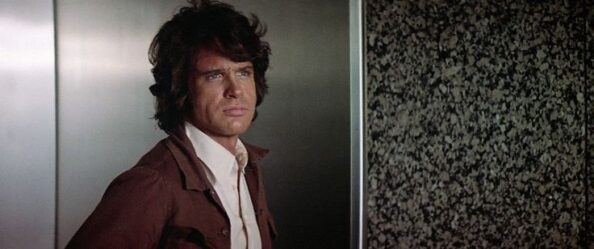 I have a general rule for films that were made prior to the year 2000: I am not smarter than the director. I have a dislike for internet trolls who search through films desperately digging for the tiniest little insignificant out-of-place detail so that they can then project themselves as being smarter than the filmmaker for having spotted the mistake. I am not that person and I wholeheartedly believe in giving benefit-of-the-doubt. So, when it comes to “The Parallax View,” I have to give both Warren Beatty and Alan J. Pakula credit based on the merit of their other (better) works. It also must be said that I was not alive when Kennedy was shot and thus conspiracy theories and coverups are not as intriguing to me as they might be to older generations… but perhaps I have only been looking at “The Parallax View” from one angle.
I have a general rule for films that were made prior to the year 2000: I am not smarter than the director. I have a dislike for internet trolls who search through films desperately digging for the tiniest little insignificant out-of-place detail so that they can then project themselves as being smarter than the filmmaker for having spotted the mistake. I am not that person and I wholeheartedly believe in giving benefit-of-the-doubt. So, when it comes to “The Parallax View,” I have to give both Warren Beatty and Alan J. Pakula credit based on the merit of their other (better) works. It also must be said that I was not alive when Kennedy was shot and thus conspiracy theories and coverups are not as intriguing to me as they might be to older generations… but perhaps I have only been looking at “The Parallax View” from one angle.
The story follows Joe Frady (Warren Beatty – hey that rhymes!) as a regional journalist who sets out to investigate the strange circumstances surrounding the deaths of peripheral witnesses of a presidential candidate’s murder. Initially, his former girlfriend, Lee (Paula Prentiss) comes to him in hysterics as she reveals to him that others who were present at the assassination have been turning up dead and she might be next. Frady is dismissive of her worries until the next scene cuts to Lee in the morgue, having died in a car wreck while high on barbiturates and alcohol. Consumed by his guilt, Frady seeks to investigate further, and from there, the film navigates through a series of ex-FBI agents, psychopaths, psychology professors, and dim-witted deputies while Frady seems determined to get to the truth.
Again, I am not smarter than Alan J. Pakula and I like a film that makes you watch it twice, but perhaps it’s a lack of establishing shots or the overall lightning-fast pace of the film that makes the viewer start to squint and go, “wait a minute, who is that guy again?” “The Parallax View” was rather popular upon its release, probably due to Warren Beatty’s feathered hair and its slick tagline “As American as apple pie” (what??) All in all, the film expects us to believe that there is a corporation run out of Los Angeles that recruits candidates with psychopathic tendencies to brainwash them into political killing machines. Okay, fine, I’ll bite. But the fact that this mysterious company recruits those candidates by mailing out cryptic narcissist-bait fliers all over the country with its address printed on them is a little much. Further, the same company would seek to kill all witnesses to an assassination in the hopes that no one would ever be suspicious of the circumstances surrounding the assassination while at the same time not getting suspicious that the witnesses to the assassination are all being assassinated kind of feels like we are running in circles.
I, a hapless millennial raised on Nickelodeon and GoGurt, can imagine a time when the political suspense genre filled with coverups and conspiracies could be seen as cool and interesting in the wake of the JFK and Bobby Kennedy murders, however, in a post-January 6th world where we now know what jacked up believers of conspiracy theories know and look like, for me, for whatever reason, I’m just not drinking the Kool-Aid. Stylistically, the film is shot beautifully – Warren Beatty is usually shot at a distance, giving him the appearance of being followed. And there are wonderfully fun set pieces, such as a car chase and a rushing dam that keep the action moving forward. But in the lexicon of Alan J. Pakula’s political conspiracy films, I think I’d much rather stick with “All the President’s Men.”
In my knowledge of not being smarter than a filmmaker, and also dutiful to take the advice I once heard from Cate Blanchett, I try dearly when watching a film not to focus on what it is that I like or don’t like about a film, but rather what it is that the filmmaker is doing or saying. And while I wholeheartedly have faith that there is an intention here to give an alternative perspective to (at the time) recent political controversy, I’m still not convinced that the filmmakers had entirely grasped the concept of the story they were telling at the time they were telling it.
Warren Beatty’s Joe Frady (I rhymed again!) doesn’t go through any type of arc or change. I’m not a stickler for box-checking character development, but at the same time, I feel like I know little about Frady and thus don’t really care what happens to him or what he finds out. Whereas in another Beatty seventies classic, “Shampoo,” I know exactly what his character George wants out of life and, as thus, find his journey more enjoyable to watch. It’s that sense of purpose lacking in “The Parallax View” that forces me to question whether or not the film is intended to entertain as a realistic political conspiracy thriller or to serve as a conspiracy perpetuated by the filmmakers themselves to create an indecipherable allegory intended to keep the viewer in such a state of guessing that they are forced to spend money on additional tickets in an attempt to decode the convoluted plot.
